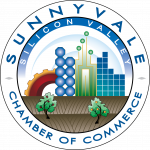Plan for Sunnyvale’s Next Economic Powerhouse District Moves Forward
In May, the Sunnyvale City Council approved a conceptual land use option for the Moffett Park Specific Plan’s Draft Environmental Impact Report, paving the way for what could become the city’s most vibrant economic center.
The effort is geared to redefine the Moffett Park Specific Plan as an “ecological and innovation district” that offers a diverse set of uses and serves as a model for resiliency, climate protection, equity and economic opportunity. The development program could yield up to 10 million square feet of new office and R&D, up to 18,500 housing units and up to 500,000 square feet of commercial space.
The area in northern Sunnyvale bounded by State Route 237, Highway 101, Moffett Federal Airfield, Caribbean Drive and the Sunnyvale Baylands Park is considered homogenous consisting of low-density office parks connected by an infrequent street grid. Initially published in 2004 and updated in 2013, the Moffett Park Specific Plan had previously focused mainly on the development of Class A office. Now the update is tasked with invigorating the area with a mix of uses, protecting against sea-level rise and bolstering energy resiliency.
The next steps in the process involve City Council study sessions, public outreach meetings and workshops, and technical studies. The eco-innovation aspect of the district will entail a considerable amount of planning to reach carbon emissions reductions goals while still maintaining economically feasible development prospects. According to Councilmember Mason Fong, this could involve leveraging state and federal programs to fund infrastructure such as a microgrid as a sustainable energy source for the community, carbon capture systems and recycled water systems.
“A lot of people don’t recognize the wide breadth of implications that this plan has,” said Fong, who had pushed for the Council to study the possibility of accommodating up to 20,000 housing units instead of 18,500 units for the plan area.
The Moffett Park Specific Plan area covers over 1,100 acres compared to the Google Downtown West Mixed-Use Plan in San Jose that covers 80 acres. As the Moffett Park area is equivalent to a small city, Fong said it is positioned to significantly impact Sunnyvale for the next 50 to 100 years.
“We really have a lot of opportunities to innovate, and actually make the eco-innovation district happen, and put our money where our mouth is,” Fong said. “And so I’m really looking forward to this exciting process and seeing how we can explore a micro-grid, water storage, et cetera.”
Microgrids are gaining popularity for their ability to generate renewable energy for local use and maintain power during periods of emergency, stress on state electrical grids and natural disasters. Currently, less than 0.2% of U.S. energy is powered by microgrids; however, that’s expected to increase in coming years. For example, the Google Downtown West Mixed-Use Plan will incorporate a microgrid through one of three options that are under review. The first option is a retail grid operated by PG&E, the second is a grid operated by the City, and the third option is a Google-operated grid. Fong said that a city-operated microgrid could be on the table for Moffett Park, but such a proposal would come with significant financial liability for the city.
“I think we’re a little bit behind San Jose in terms of looking at it just because we started our process a little later,” Fong said. “Staff is aware of San Jose’s conversations, and they’ve seen how it has gone, and we’re probably going to have very similar conversations that will happen during study sessions over the course of the EIR.”
Reprinted from the Silicon Valley Voice: Full article here
